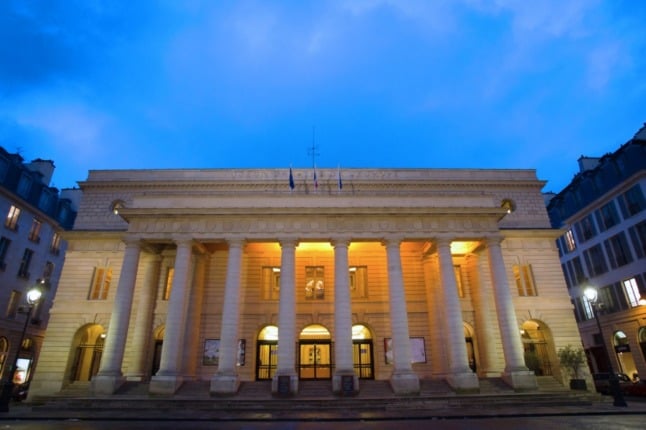The show draws its inspiration from the anti-capitalist riots that exploded across the world in the late nineties. Set in the British capital in 1999, it follows the lives of Bosnian couple Jarni and Petra as they struggle to adapt to life there.
Jarni (Daniel Wiland) had been a doctor back in Bosnia, and finds the work he is doing in London to be beneath him. “We’re educated people and they treat us like trash,” he complains.
The turning point for him and Petra (Kinga Szabadváry) comes when he rescues a young man who has been injured in a fight with a bunch of football hooligans. This man turns out to be The Warrior (Daniel Engman), a leader of ‘Action Today’, an eco-terrorist group.
Jarni slowly gets sucked into Action Today, a path that eventually leads to his destruction.
Big political questions permeate the play, something Pattie is comfortable with – his father, Sir Geoffrey Pattie, who wrote the libretto for the musical, was a minister in Margaret Thatcher’s government, and Pattie fils is the Conservative leader of the local authority in East Hampshire, southern England.
But Pattie is not out there to confirm conservative principles – he wants the play to challenge them. He refuses to condemn the eco-warriors outright:
“They’re on the right track, but violent demonstration is not the way forward.”
“It is right to talk about the environment, but it is wrong to do it by violent means. I’m showing the fallout of that.”
Making Bosnian immigrants into the heros of the play is another way of challenging conservative views of migration – a subject that causes controversy not only in Britain, but also in Sweden, America and elsewhere.
“I want white, middle-class, Western people to see that immigration is to society what oxygen is to the body.
“I want conservative people to fall in love with my immigrants, and then take one away from them.”
The decision to premiere the play in Sweden, with Swedish actors, was mainly down to chance. Pattie is old friends with producer Steve Martin, who introduced him to Sweden-based Brit David Hynes, a composer. Pattie persuaded Hynes to set his script to music, and the team later brought in Swedish musician Jan Sjönneby to arrange the score.
With so many Swedes already involved, it seemed a natural step to produce the play in Stockholm.
“Muhammad had to go to the mountain,” Pattie explains.
Finding actors was surprisingly easy, and the cast includes stars of the Swedish stage versions of Beauty and the Beast, Les Miserables and Rent.
“The Swedish cast is fantastic to work with, they’re very well trained and they’re physically fantastic to look at,” he says. Indeed, watching the cast in rehearsals, it is only the strong performances that make the tall, smooth-skinned Vikings credible as unwashed English class-warriors threatening to “bring down the hoardes of money-men”.
The play is performed in English, and will run for just five performances. Pattie hopes to start a longer run next year, for which the dialogue, although not the song lyrics, are likely to be translated into Swedish. But his ambition doesn’t end there – eventually, he wants to take the show to London.
Ever the politician, he has a battle plan to create a buzz around the play, not only in Sweden, but also back on home territory.
“Our plan is to make the British theatre desparate for us,” he says, with all the self-assurance of a politician.
London –the Musical, opens on Friday, 12th May, at 8pm
Performances Saturday, 13th May, 3pm and 7.30pm
Sunday, 14th May, 3pm and 7.30pm
Location: Dieselverkstaden, Sickla, Stockholm.
For more information and tickets www.londonthemusical.com


 Please whitelist us to continue reading.
Please whitelist us to continue reading.